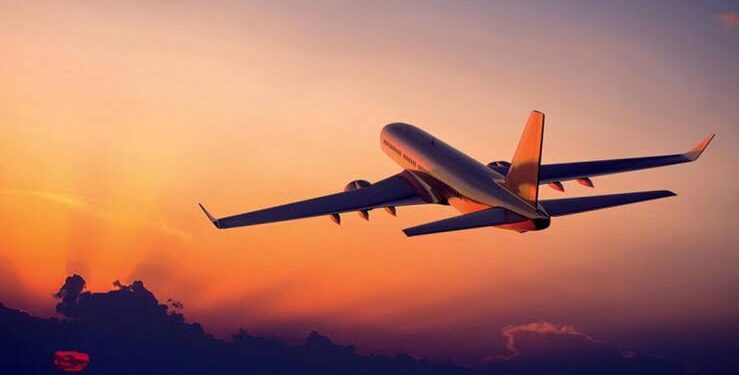By John Ikani
Air travel is gradually recovering post-pandemic, but inflation figures suggest an upcoming increase in average ticket prices (ATP) for flights in Africa, Europe, and the Middle East.
A recent report by CWT, a leading business travel and meetings specialist, along with the Global Business Travel Association (GBTA), reveals that ATP for these regions is expected to reach $879 in 2024.
The report discloses that ATPs globally for flights booked for business travel saw a remarkable surge in 2022, experiencing record-breaking price increments.
Specifically, the ATP soared by a staggering 72.2% year over year (YoY), reaching $749 in 2022, far surpassing the 2019 figure of $670.
However, a noticeable divergence occurred in Africa, Europe, and the Middle East, where the ATP rates were highest in 2022. CWT forecasts an additional 2.9% increase in prices later this year, followed by a 2.2% rise in 2024.
Despite the robust rebound in air travel demand, with passenger numbers approaching pre-pandemic levels, this resurgence has primarily been driven by pent-up leisure travel demand.
Nevertheless, the aviation sector is grappling with challenges arising from labor shortages and supply chain disruptions, which continue to limit airline capacity.
Although the demand for air travel has rebounded strongly, with passenger numbers swiftly approaching pre-pandemic levels, the airline capacity remains restricted due to labor shortages and supply chain issues.
Looking ahead, the growth in ATP is likely to be more measured, at 2.3% in 2023 and 1.8% in 2024, although from an already elevated base. Yet, numerous corporate buyers now possess reduced leverage to negotiate with airlines, given that their travel volumes still lag below pre-pandemic levels.
With an ATP of $855, the Europe, Middle East, and Africa (EMEA) region registered the highest figure in 2022 compared to other global regions. This denotes a 31.5% increase from 2021. More moderate price hikes are anticipated in the future, with ATPs predicted to rise by 2.9% this year and 2.2% in 2024.
Why Could Air Travel Costs Surge?
The report anticipates a more gradual uptick in prices due to ongoing economic uncertainty and gradual supply-side improvements over the coming 12-18 months.
Escalating fuel expenses, labor shortages, and supply chain obstacles, combined with robust demand, contributed to the surge in travel prices in 2022, surpassing the previous year’s projections.
Furthermore, elevated inflation has heightened operational costs for travel providers, burdening travelers to some extent. These trends are expected to persist throughout late 2023 and 2024.
Patrick Andersen, CWT’s Chief Executive Officer, underscores the interplay of demand and supply-side pressures that propelled travel prices to unprecedented levels last year.
“As we look forward, prices appear to be stabilizing, with much gentler increases expected over the next 12 to 18 months. We might now be witnessing the true net cost of travel. Our focus remains on aiding customers in finding the right strategies and solutions to optimize their travel budgets, fulfill their ESG commitments, and maximize the ROI on their travel expenditure.”
“As this research indicates, it’s evident that rising costs and pricing pressures will likely remain significant factors in business travel in the foreseeable future. Just as we’ve observed over the past few years, we might also continue witnessing various pricing fluctuations across industry sectors, business categories, and global regions. While business travel continues its recovery, a delicate balance among demand, cost, and ESG considerations will persist.”
“With a forecast of increased volatility ahead, our objective is to provide insights like these to assist travel buyers, suppliers, intermediaries, and financial executives in comprehending, evaluating, and adjusting their business travel strategies,” commented Suzanne Neufang, Chief Executive Officer, GBTA.




































